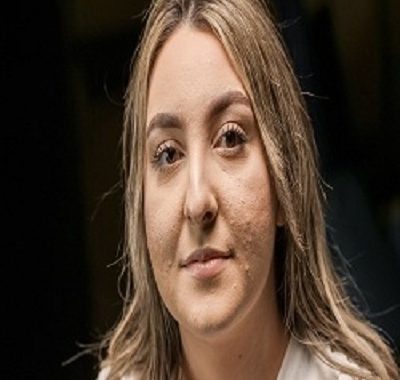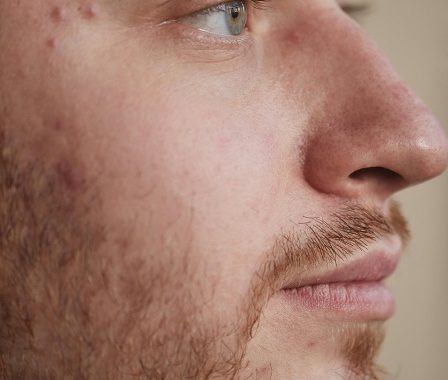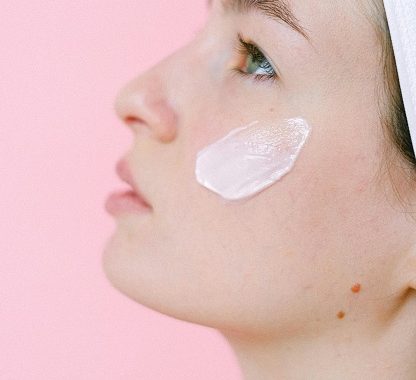
�
Acne, a persistent skin condition affecting millions worldwide, can often be a stubborn adversary, especially when it’s linked to hormonal fluctuations. Despite numerous treatments available, hormonal acne continues to challenge both dermatologists and sufferers alike.
However, in recent years, hormonal therapy has emerged as a promising solution, offering relief for those struggling with relentless acne outbreaks.
This article delves into the efficacy of hormonal therapy, particularly focusing on spironolactone, and explores natural remedies for hormonal acne, providing insights into the best approaches to combat this skin concern effectively.
Understanding Hormonal Acne:
Hormonal acne is a result of intricate hormonal shifts, particularly involving androgens, which play a pivotal role in stimulating the sebaceous glands.
These glands, when overactivated, produce excess sebum, forming a breeding ground for acne-causing bacteria when combined with dead skin cells. This interplay commonly results in the formation of deep, painful cysts, characteristically seen along the jawline, chin, and cheeks.
It’s worth noting that hormonal acne isn’t exclusive to any specific age group or gender, making it a widespread concern affecting individuals across diverse demographics.
Traditional Treatments vs. Hormonal Therapy:
Hormonal acne results from a complex interplay of hormones, primarily androgens, which play a pivotal role in regulating sebum production. Androgens, such as testosterone, stimulate the sebaceous glands to produce more oil, creating an environment conducive to acne formation.
This excess sebum, combined with dead skin cells, forms a plug in the hair follicles, leading to the formation of comedones, papules, pustules, and in severe cases, cysts.
Unlike traditional acne, hormonal acne tends to occur predominantly in specific areas such as the jawline, chin, and cheeks, owing to the higher concentration of androgen receptors in these regions.
However, hormonal fluctuations can affect individuals of any age or gender, with women often experiencing hormonal acne during puberty, menstruation, pregnancy, or menopause.
The severity of hormonal acne can vary, ranging from occasional breakouts to chronic, cystic lesions that are resistant to conventional treatments.
Understanding the hormonal basis of acne is crucial for devising targeted treatment strategies that address the underlying hormonal imbalances, thereby offering effective solutions for managing this often stubborn and distressing skin condition.
Best Tea Tree Essential Oil by Fiora Naturals
Efficacy of Spironolactone:
The efficacy of spironolactone in treating acne is a topic of significant interest for many individuals grappling with persistent skin concerns. Upon starting spironolactone treatment, patients frequently inquire about the timeline for noticeable results.
While responses vary depending on individual factors such as skin type, severity of acne, and hormonal fluctuations, many users report observing improvements within a few weeks to months after initiating therapy.
However, it’s crucial for patients to maintain realistic expectations and exercise patience, as spironolactone typically necessitates several months to exert its full therapeutic effect.
Dermatologists commonly adopt a cautious approach when prescribing spironolactone, often initiating treatment at a low dosage, such as 50 mg daily.
This conservative starting point allows for careful monitoring of patient response and minimizes the risk of adverse effects. Over time, dermatologists may adjust the dosage based on individual needs, gradually increasing it as necessary to achieve optimal acne control.
The effectiveness of spironolactone in managing acne is supported by a wealth of clinical evidence. Numerous studies have demonstrated its ability to mitigate hormonal acne by targeting androgen receptors and reducing sebum production.
This robust body of research underscores spironolactone’s role as a reliable hormonal therapy for acne, particularly in cases where traditional treatments have proven ineffective or intolerable.
Moreover, spironolactone is generally well-tolerated, with a favorable side effect profile compared to alternative medications. Common side effects, such as increased urination and breast tenderness, are typically transient and diminish over time as the body adjusts to the medication.
This favorable safety profile further enhances spironolactone’s appeal as a therapeutic option for individuals seeking long-term management of hormonal acne.
In summary, spironolactone represents a valuable tool in the dermatologist’s arsenal for combating hormonal acne. While the timeline for noticeable improvements may vary, patients can anticipate meaningful results with patience and consistent adherence to treatment.
With its well-documented efficacy and favorable safety profile, spironolactone offers a promising solution for individuals striving to achieve clearer, healthier skin.
Apple Cider Vinegar Foam Exfoliating Face Wash & Brush
Natural Remedies for Hormonal Acne:
While hormonal therapy like spironolactone can be highly effective, some individuals prefer natural approaches to managing their acne. Fortunately, several home remedies and lifestyle modifications can complement hormonal therapy and promote clearer skin:
-
Balanced Diet:
Colorful fruits and vegetables are abundant sources of antioxidants, vitamins, and minerals, which are crucial for skin health. Antioxidants help neutralize free radicals that can damage skin cells and contribute to inflammation, while vitamins like A, C, and E support collagen production and skin repair.
Additionally, fiber-rich fruits and vegetables aid in digestion and promote the elimination of toxins, which may indirectly reduce acne flare-ups.
Incorporating lean proteins such as poultry, fish, tofu, and legumes into your diet provides amino acids necessary for tissue repair and hormone synthesis. Protein-rich foods also have a low glycemic index, which means they don’t cause rapid spikes in blood sugar levels.
Stable blood sugar levels help prevent insulin spikes, which can trigger hormonal fluctuations that contribute to acne development.
Omega-3 fatty acids found in fatty fish like salmon, walnuts, flaxseeds, and chia seeds possess anti-inflammatory properties that can help reduce acne-related inflammation. Additionally, incorporating healthy fats from sources like avocados, olive oil, and nuts helps maintain skin hydration and integrity, preventing excessive dryness and irritation.
-
Stress Management:
Stress management plays a pivotal role in controlling hormonal acne. Chronic stress disrupts hormone levels, leading to increased sebum production and inflammation, exacerbating acne symptoms.
Adopting relaxation techniques like meditation, yoga, or deep breathing exercises can mitigate stress’s adverse effects on hormonal balance. These practices promote the release of endorphins, which counteract stress hormones, thereby reducing acne flare-ups.
Additionally, relaxation techniques induce a state of calmness, improving sleep quality and reducing cortisol levels, further benefiting skin health.
Consistent stress management not only alleviates acne but also enhances overall well-being, fostering a harmonious balance between mind and body for clearer, healthier skin.
-
Proper Skincare:
Proper skincare forms the cornerstone of any holistic approach to managing hormonal acne. Gentle cleansing and moisturizing with non-comedogenic products are paramount.
Non-comedogenic products are specifically formulated to prevent pore blockages, crucial for individuals prone to acne. Gentle cleansing removes dirt, excess oil, and impurities without disrupting the skin’s natural barrier.
It’s essential to avoid harsh cleansers that can strip away natural oils, leading to increased sebum production and potential irritation. Moisturizing with non-comedogenic moisturizers keeps the skin hydrated without clogging pores, promoting a healthy skin barrier.
By adhering to a consistent skincare routine tailored to their skin type, individuals can effectively support hormonal therapy like spironolactone and enhance the overall clarity and health of their skin.
Organic Aloe Vera Gel for Face
-
Hormone-Balancing Supplements:
Hormone-balancing supplements offer a promising avenue for those seeking natural solutions to hormonal acne. Zinc plays a crucial role in regulating hormone levels and reducing inflammation, promoting healthier skin.
Omega-3 fatty acids, found in fish oil supplements, have anti-inflammatory properties that can help alleviate acne symptoms by calming the skin and reducing sebum production.
Additionally, vitamin D deficiency has been linked to hormonal imbalances, and supplementation may restore optimal hormone levels while supporting overall skin health.
Incorporating these supplements into a balanced diet can complement hormonal therapy like spironolactone, providing a holistic approach to acne management that addresses both the internal and external factors contributing to acne development.
However, it’s essential to consult with a healthcare professional before starting any new supplement regimen to ensure safety and efficacy.
Read more:
How To Clear Up Hormonal Acne Fast
Can Hormone Therapy Help With Acne?
�
Conclusion:
Hormonal therapy can be a valuable option for women struggling with persistent acne, offering a tailored approach to treatment. However, it’s essential to recognize that hormonal therapy is not a one-size-fits-all solution. Consulting with a dermatologist ensures personalized recommendations based on your health history, preferences, and acne severity. If stubborn acne is a concern, hormonal therapy may be the key to achieving clearer, healthier skin.
Further Reading:
A Review of hormone-based therapies to treat adult acne vulgaris in women
Hormonal Acne Treatment That Doesn’t Involve Birth Control Pills
FAQs:
What is the best treatment for stubborn pimples?
The best treatment for stubborn pimples often involves a multifaceted approach. Topical treatments containing ingredients like benzoyl peroxide, salicylic acid, or retinoids can help unclog pores and reduce inflammation.
Oral medications such as antibiotics or isotretinoin may be prescribed for severe cases. Dermatological procedures like chemical peels or laser therapy can target resistant pimples.
Consistent and gentle cleansing, avoiding skin irritation, and maintaining a healthy lifestyle with proper skincare contribute to an effective treatment strategy. Consulting with a dermatologist ensures personalized recommendations for stubborn pimple management.
Does hormonal acne go away with treatment?
Yes, hormonal acne can often be effectively treated, and in many cases, it can significantly improve or completely resolve with appropriate treatment. Hormonal therapies such as oral contraceptive pills or medications like spironolactone can be effective in addressing the underlying hormonal imbalances that contribute to this type of acne.
However, it’s important to note that individual responses to treatment may vary, and consistency in following the prescribed treatment plan is crucial. Consulting with a dermatologist can help determine the most suitable approach for managing hormonal acne and achieving long-term clearance.
Can hormone therapy help with acne?
Yes, hormone therapy can be effective in treating acne, especially when hormonal imbalances contribute to its development. Hormonal therapies such as oral contraceptive pills (birth control pills) and spironolactone can help regulate hormones, reduce oil production, and alleviate acne symptoms.
These treatments are particularly beneficial for women experiencing acne along the lower face, jawline, or neck. It’s important to consult with a healthcare professional or dermatologist to determine the most suitable hormone therapy based on individual health factors and acne severity.
How do you get rid of stubborn hormonal acne?
Getting rid of stubborn hormonal acne often involves targeted treatments addressing the underlying hormonal imbalances. Hormone therapies such as oral contraceptive pills or spironolactone are common options, helping regulate hormones and reduce acne symptoms.
Consistent and gentle skincare, along with topical treatments containing ingredients like benzoyl peroxide or retinoids, can complement hormonal therapies. Dermatological procedures such as chemical peels may also be considered for more severe cases.
Consulting with a dermatologist is crucial to developing a personalized and effective treatment plan for stubborn hormonal acne.




Pingback: How to Stop Hormonal Acne Naturally - Acnes derma relief
Pingback: How Long For Spironolactone To Work For Acne - Acnes derma relief
Pingback: How To Treat Hormonal Acne Naturally At Home - Acnes derma relief
Pingback: How To Clear Up Hormonal Acne Fast - Acnes derma relief
Pingback: Best Hormonal Acne Treatment - Acnes derma relief
Pingback: Spironolactone Cream For Acne - Acnes derma relief